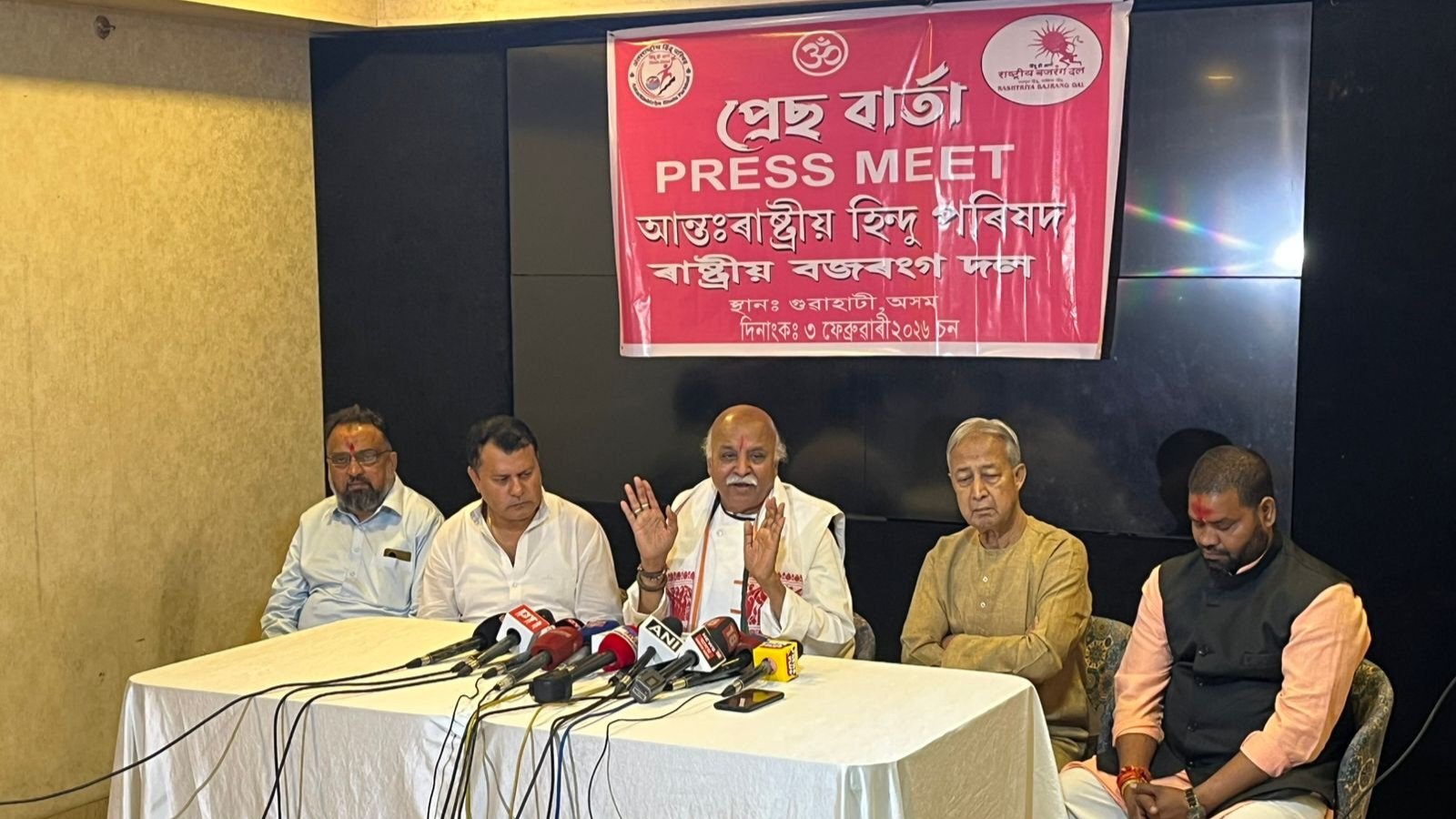Guwahati: Hundreds of lawyers under the Guwahati Lawyers’ Association staged a massive protest on Monday opposing the government’s decision to temporarily shift the Chief Judicial Magistrate (CJM) Court of Kamrup (Metro) to another location.
The protest rally began from the CJM Court premises and marched towards the Gauhati High Court, with advocates holding placards and banners while chanting slogans against the relocation move.
The agitating lawyers alleged that the decision to shift the court was taken without any consultation or prior notice to the Guwahati Bar Association. They described it as an “unnecessary and purposeless move” that undermines the legacy and functioning of the judicial system.
“Courts can function properly only when the Bench and the Bar work together. No discussion was held with us before taking this decision,” said one protesting lawyer.
Speaking to The Guwahati, Pradip Kumar Konwar, President of the Guwahati Lawyers’ Association, said that the association has been opposing the temporary relocation from the very beginning. “We have no objection if the court is permanently relocated to a new, well-equipped place. But we do not agree with the temporary shifting to the GAD building, which lacks even basic facilities,” he said.
Konwar added that the new site has severe space constraints and cannot accommodate the working needs of the lawyers. He demanded that the CJM Court continue to function from its current premises until a permanent location is finalized.
He further warned that the lawyers’ community may resort to court boycotts or other democratic forms of protest in the near future if their concerns are ignored.
In a memorandum submitted to the Gauhati High Court, the Guwahati Lawyers’ Association demanded:
- Reconstruction of the existing CJM Court building,
- Relocation of the CJM Court and subordinate courts back to the original CJM complex, and
- Formation of a commission to inspect the current CJM Court building.
The association clarified that it has no objection to a permanent, collective relocation of all courts and tribunals once a suitable arrangement is made.










